The first half of the XIX century was not the best time for the Ottoman Empire. The Anglo-Russian-French coalition destroyed in the Battle of Navarino a large part of the Turkish fleet and allowed Greece to launch the process of gaining independence. Russia also obtained Ottoman autonomy for Serbia and established its protectorate over Wallachia and Moldavia. France occupied Algeria, and Egypt became de facto independent and declared its claims to Turkish lands.
In 1833, Russian troops saved Turkey from being killed by the Egyptian offensive. In response, Istanbul signed an agreement with St. Petersburg that guaranteed the closure of the Black Sea straits for foreign ships in the event of war, as well as the free passage of Russian ships to the Mediterranean Sea. In 1840, a coalition of European states forced Egypt to abandon expansion into the Levant and recognize the formal dependence on Istanbul.
In 1841, under pressure from Great Britain, the status of the straits was changed as a result of the signing of the London Convention on the Straits. Russia has lost the rights it received under the agreement with Turkey. The ships of the Black Sea Fleet could no longer freely go to the Mediterranean, which allowed London to claim hegemony in the region.
The Ottomans, in turn, returned to the policy of restricting the rights of the Christian Slavic population of the empire, which caused great concern among the Russian authorities.
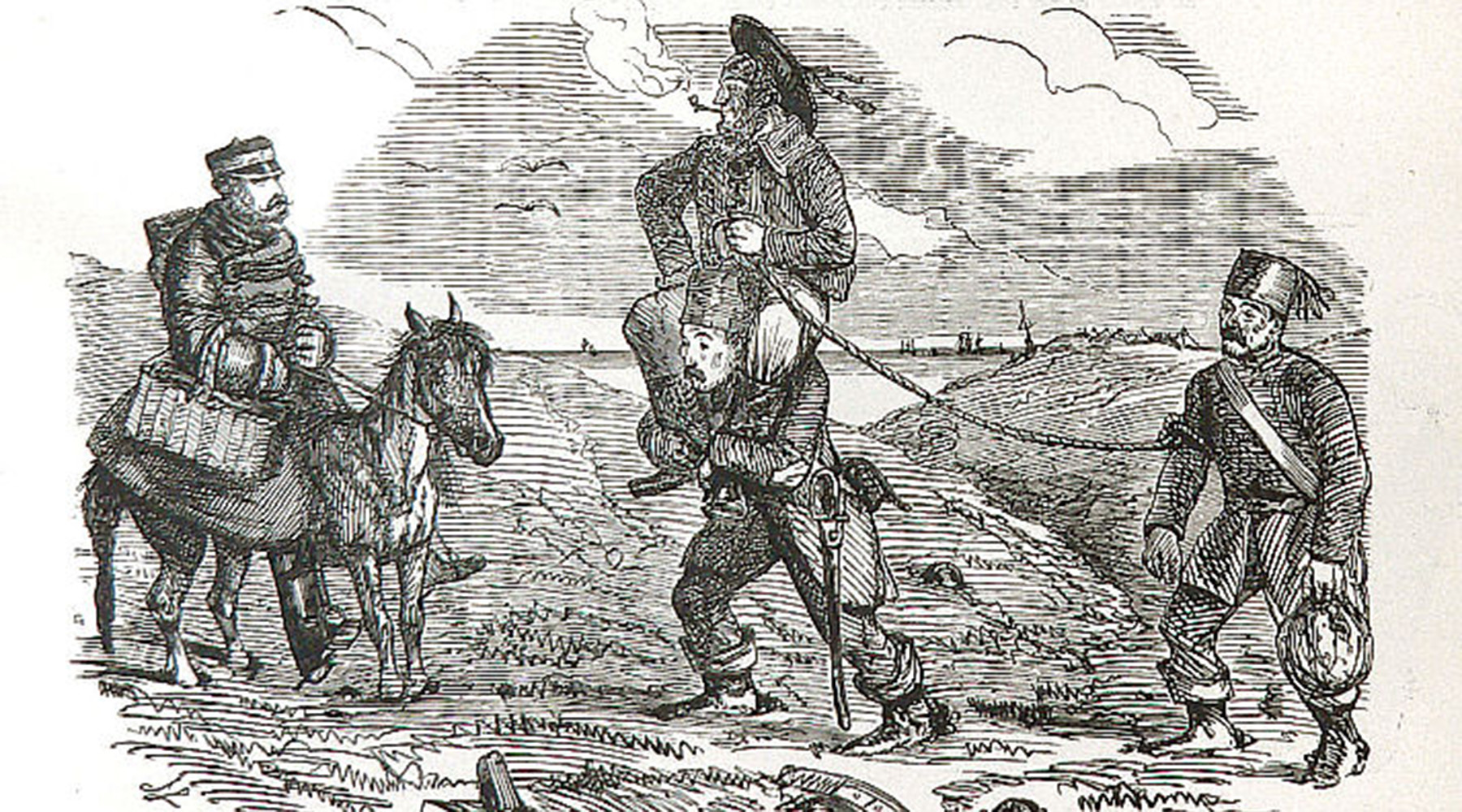
- The caricature of the Crimean War, illustrating the domination of the British over the Turks
- © Wikimedia Commons
If Great Britain was interested in the liberation of Greece, then the further weakening of Turkey and the strengthening of Russia were not part of its plans. Official London back in 1838 actually subjugated the Ottoman Empire and forced the Turks to establish a free trade regime. In addition, the territory of Turkey was used for the transit of British goods to the east. The creation by the Christian peoples of the Balkans and the Caucasus of independent states or their transfer under the protectorate of Russia was absolutely not acceptable for London. The presence of financial interest allowed us to close our eyes to the suffering of the peoples captured by the Ottomans.
In the Western press, rumors began to circulate about the desire of Nicholas I to annex Constantinople to Russia, which was completely untrue. Napoleon III, who was recently called the leader of "pimps and prostitutes," the British journalists began to unexpectedly praise. And the Ottoman Empire in the pages of British newspapers has become a power, which has taken the path of transformation.
Reason for war
The attitude of Napoleon III to Russia was initially cool. Being a conservative and supporter of order in everything, Nicholas I considered the French ruler illegitimate - because, according to international acts, the Bonapartes were denied the right to the throne. And the nephew of the emperor of France defeated by the Russian troops, in turn, dreamed of a revenge for the defeat of his uncle. In 1852, relations between St. Petersburg and Paris became even more aggravated because of a dispute over whether the Church of the Nativity of Christ in Bethlehem still belongs to Catholics or Orthodox.
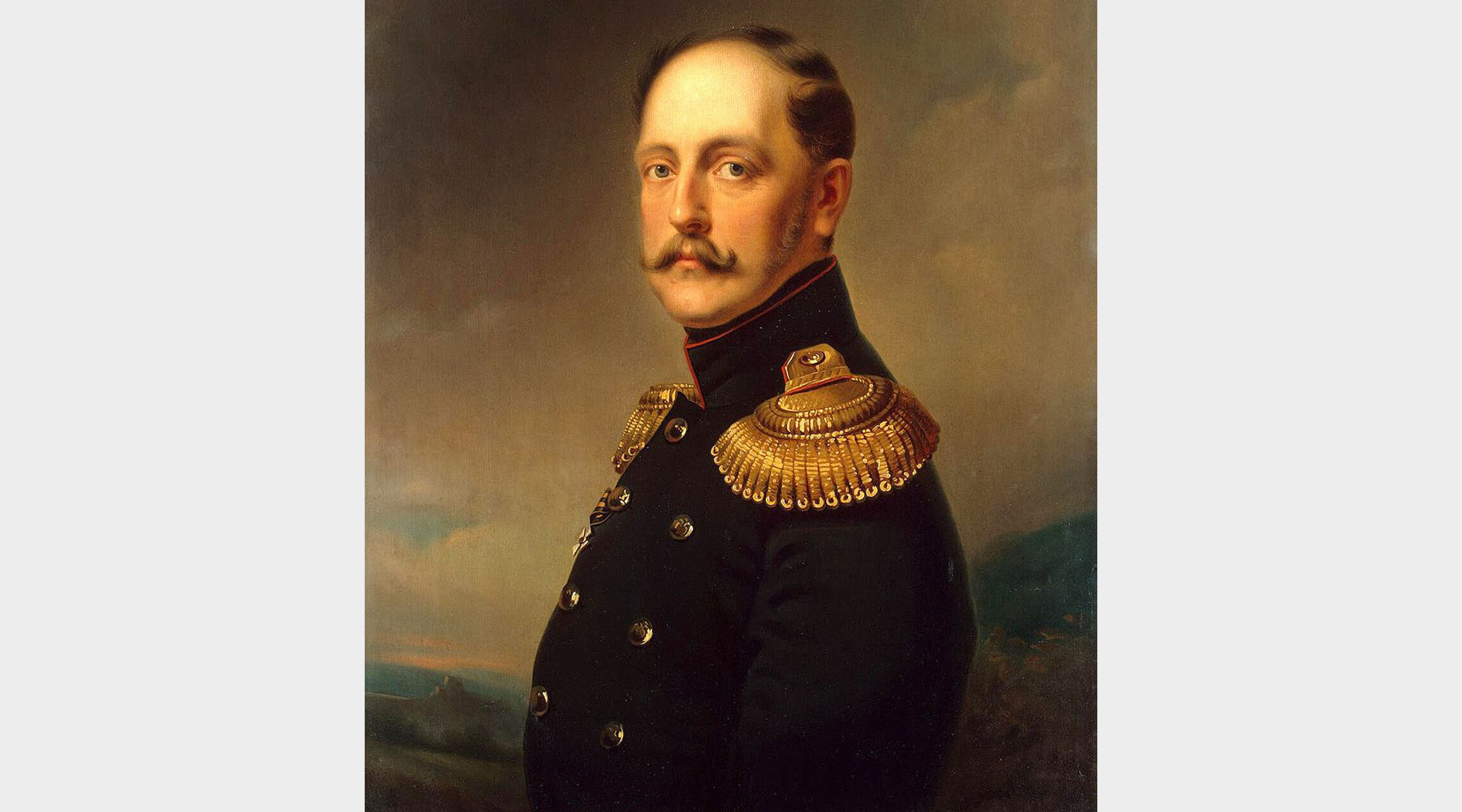
- Emperor Nicholas I
- © Horace Vernet "Portrait of Nicholas I"
In early 1853, Prince Alexander Menshikov departed with Turkey to the embassy. He was to achieve the granting of the rights of the Hellas church to holy places in Palestine and the establishment of a Russian patronage over the Christian population of the Ottoman Empire. The British persuaded the Turks to accept the conditions only partially, and the sultan denied Russia the right to patronize the Christian population.
Diplomatic relations were severed, and St. Petersburg, taking advantage of the right granted to it earlier, sent troops into Moldavia and Wallachia. At a conference in Vienna, the European powers persuaded Russia to withdraw troops from the Danube in exchange for Turkey’s fulfillment of the initial demands of St. Petersburg. Nicholas I agreed, but under the influence of the British, the Turkish side began to make changes to the documents already agreed by the international community. Moreover, the Ottomans began to put forward ultimatums regarding the withdrawal of troops, and on October 16, 1853, they declared war against Russia. Even before this, Turkey launched a 50,000-strong army towards the border, which included Polish revolutionaries and also organized a brutal massacre in Montenegro.
Heading British foreign policy, Lord Henry Palmerston began to promote in the European arena the idea of dividing Russia and the territories under its protectorate. He offered Finland to Sweden, the Baltic states - Prussia, the Danube principalities - Austria, the Crimea and the Caucasus - Turkey.
Potentially deprived of most of the coastal territories of Russia, the British, apparently, planned to force them to abandon the policy of protectionism and impose on it a “free trade” agreement, similar to the one with which they put control of the Turkish economy.
Sinop battle
After the declaration of war, clashes between Russian and Turkish troops began on the Danube and in the Caucasus. In mid-November, the Russian ships won several small victories in the fighting on the Black Sea, despite the help of the Turks by the British military advisers. In order to land in the Caucasus, the Ottomans sent a powerful squadron under the command of Osman-Pasha to the Black Sea. The success of this enterprise was fraught with dangerous consequences for Russia.
Back in early November, the Vice-Admiral Pavel Nakhimov, commander of the squadron of the Black Sea Fleet, was instructed to block the movement of Turkish ships. On November 20, Russian ships approached Sinop, where at that time part of the Turkish fleet stood. Because of the strong storm, Nakhimov did not have time to take any active actions, and Osman-Pasha's squadron entered the Sinop Bay.
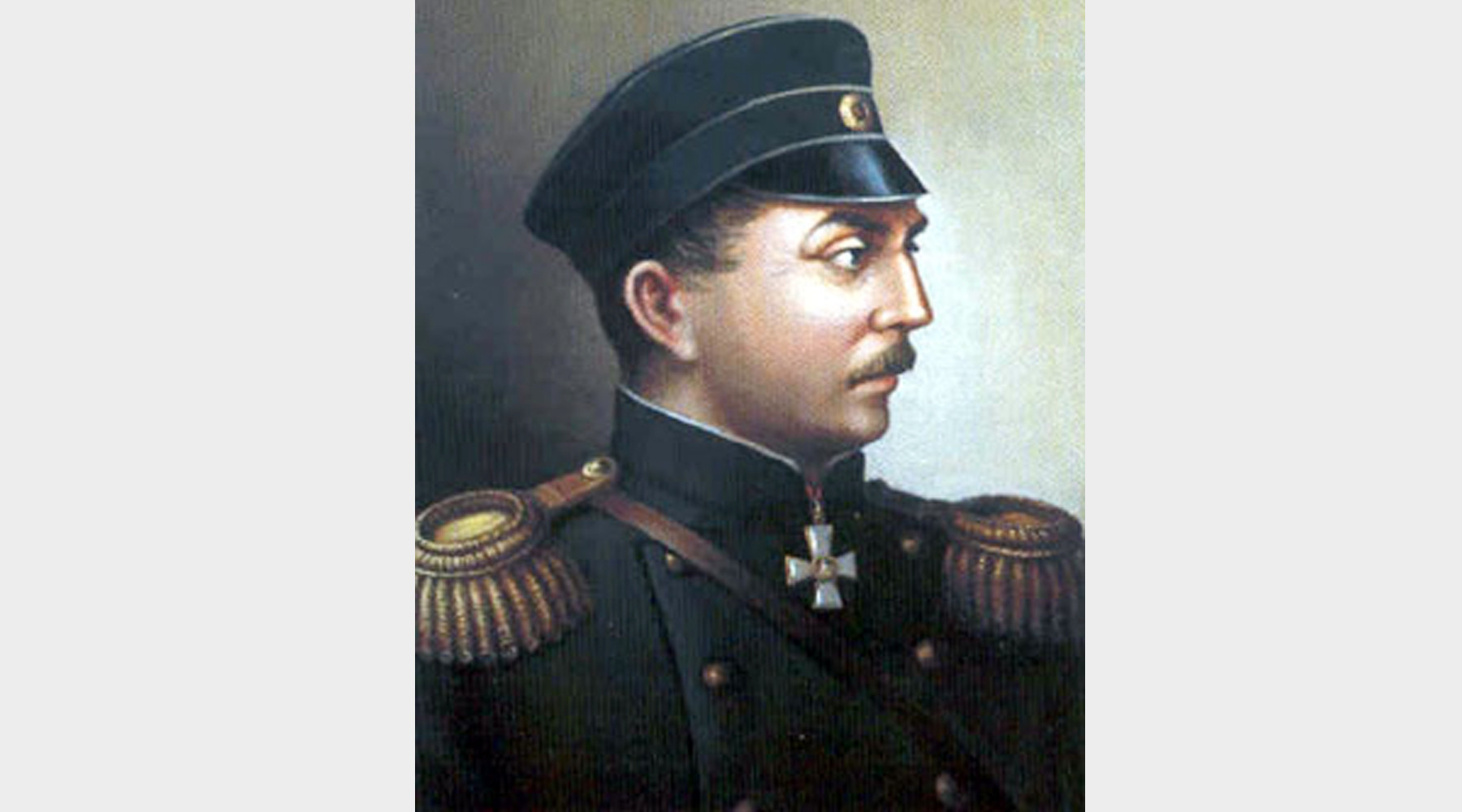
- Portrait of Admiral Nakhimov
- © Wikimedia Commons
Fearing the approach of the new Turkish forces, Nakhimov called for reinforcements from Sevastopol (squadron of Rear Admiral Fyodor Novosilsky) and decided to attack the enemy. Seven frigates, three corvettes, two steamships and two armed vehicles stood up to the Russian sailors. The total number of artillery assets of the Turkish ships was 476 guns. In addition, the Osman Pasha squadron was under the protection of powerful coastal batteries.
Nakhimov could oppose the Turks six battleships, two frigates and three ships. The Russian squadron exceeded the Turks about one and a half times in the number of ship guns. But it was at a disadvantage because of the coastal artillery of the enemy.
The Russian admirals decided to attack the enemy in two columns. The gunners were allowed to shoot only at enemy ships and batteries - it was decided not to touch Sinop.
On the morning of November 30, Russian ships set off to attack. Despite the powerful fire from the bay and from land, the battleship "Empress Maria" advanced as far as possible and suppressed the resistance of the frigates Aunni Allah and Fazli Allah (the former Raphael, captured by the Turks at one time from the Russians). After that, the crew of the "Empress Maria" began to destroy the fifth Turkish battery.
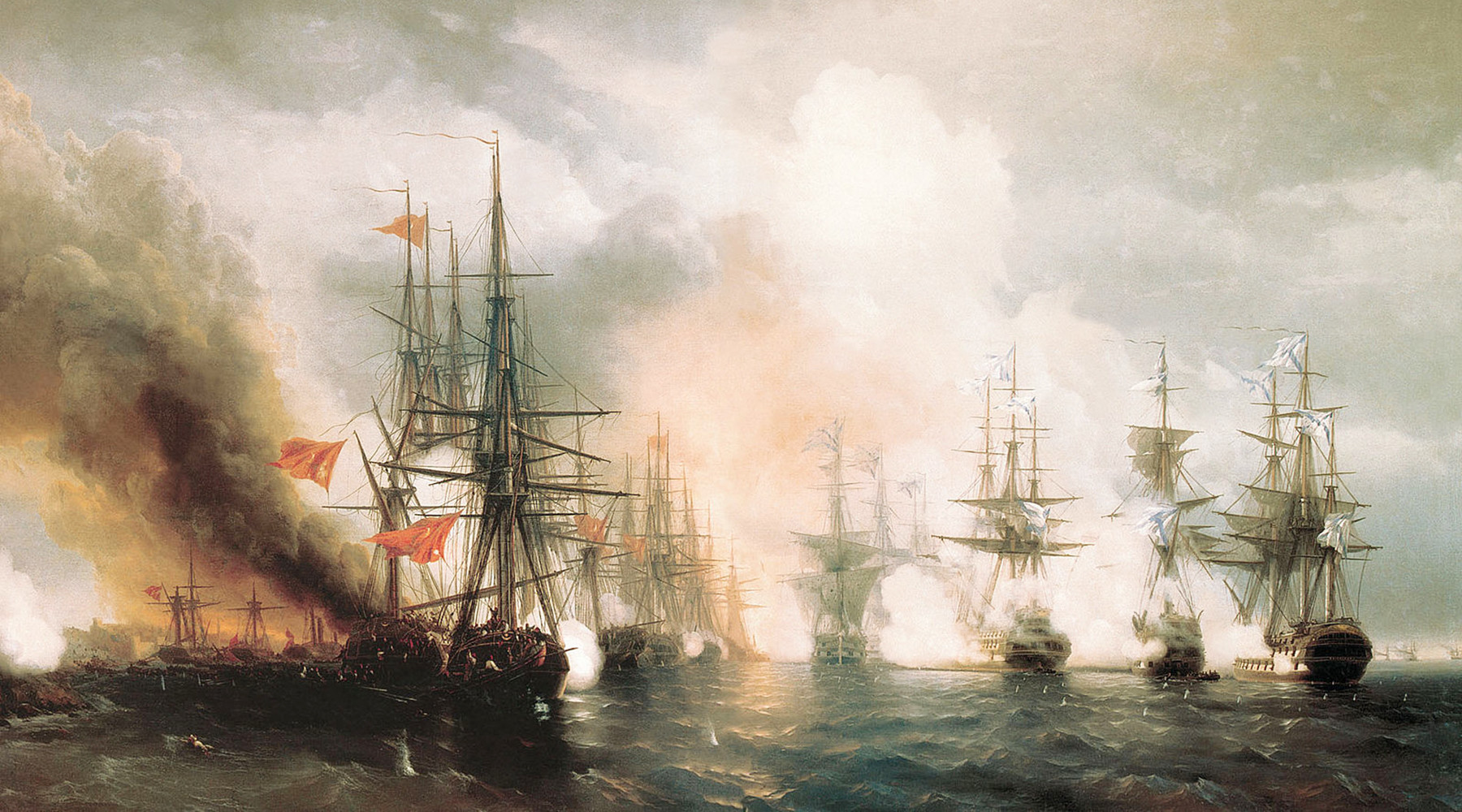
- I. K. Aivazovsky “Sinop fight”
The remaining Russian battleships with artillery volleys demolished the third and fourth Turkish batteries, and also set fire to most of the Ottoman frigates and corvettes.
In the afternoon, three Russian steam-powered frigates approached the Sinop and demolished the sixth battery. Seeing that the situation was hopeless, the commander of the Turkish steam-powered frigate Taif, Yahya Bey, took advantage of the good handling characteristics of his ship and fled. He reported to Istanbul about the death of the squadron. Despite the salvation of one of the best ships, the sultan received Yahya Bey coldly because of his flight from the battlefield, deprived him of his rank and dismissed him.
"Swan song of the sailing fleet"
“The Battle of Sinop is called the swan song of the sailing fleet. Indeed, this was the last squadron battle in world history, which consisted mainly of classic sailing ships, ”said Konstantin Strelbitsky, chairman of the Moscow Fleet History Club, in an interview with RT.
According to him, the Turkish naval forces in the Bay of Sinop were not inferior to the Russian, and, in addition, were covered with batteries. Nevertheless, the Russian squadron won a convincing victory.
The Turks in the Battle of Sinop lost seven frigates, two corvettes and more than three thousand people killed and wounded. About 200 Turks, including Admiral Osman Pasha, were captured. Sinop batteries were crushed.
On the Russian side, 37 sailors were killed in the battle, about two hundred were injured. Ships of the Black Sea Fleet were damaged by rigging and spars. However, on December 4, they returned safely to the raid of Sevastopol.
“It is often said that, allegedly because of the Battle of Sinop, the British and French entered the war, and that the victory in the Bay of Sinop led to grave consequences. I fundamentally disagree. Russia had two options in that situation - to go into defeatist moods and give up or go and win. Chose the second and did the right thing. The British understood that the Russian fleet on the Black Sea was a serious force, and were determined to oppose it. By and large, in that situation, Russia had no other choice, ”explained Vadim Prokopenkov, a co-chair of the regional branch of the Russian Historical Society in Sevastopol, in an interview with RT.
According to him, Admiral Nakhimov argued that Britain would do everything possible to neutralize the Russian fleet, and the words of the naval commander turned out to be prophetic.
"The battle of Sinop was the reason for the English fraud in the press and anti-Russian militant propaganda," the expert said.
The British newspaper Daily News assured its readers that the Ottoman Empire had more religious rights for Christians than in Russia. The Times called for the Russians to be driven "into the depths of forests and steppes." The head of the House of Commons, John Russell, said that until the Russian Black Sea Fleet has been destroyed, Europe will not know the world. British Secretary of State for Foreign Affairs George Claredon called the impending attack on Russia "a battle of civilization with barbarism."
March 27, 1854 Britain and France declared war on Russia. The allies who had planned to take Sevastopol in one or two weeks stood under its walls for a year. And despite the fact that the best forces of the Russian army were concentrated in the area of Poland, where the main attack was expected. And in the Crimea, the select Guards units of England and France were opposed by ordinary army units and naval crews taken from ships.
“Those ships, on which Nakhimov won a victory in the Battle of Sinop, were then submerged in the Sevastopol Bay to prevent the enemy squadron from penetrating into it. Later, they erected a monument, which became one of the symbols of the city, ”said Strelbitsky.
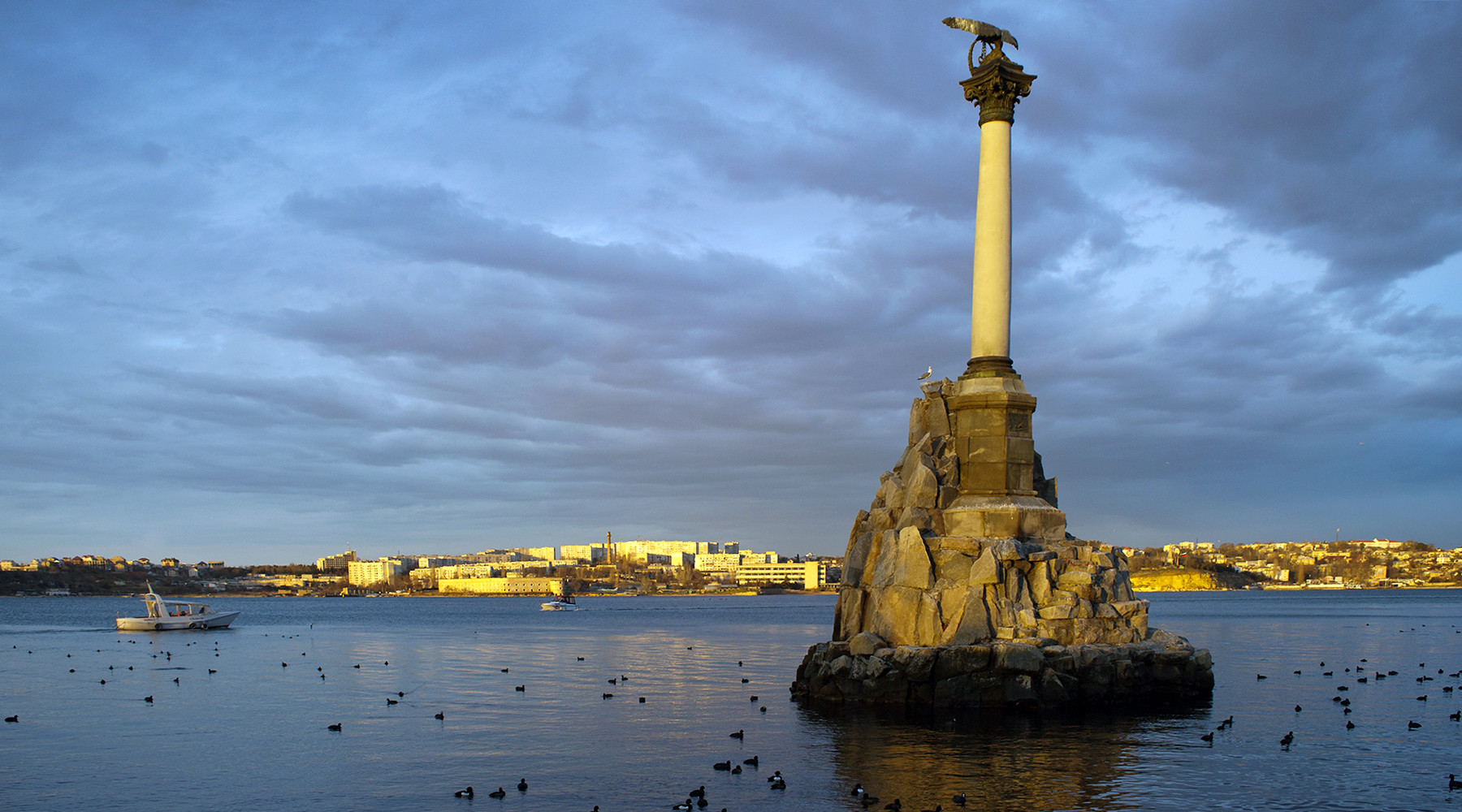
- Monument to Scuttled Ships in Sevastopol
- RIA News
- © Sergey Malgavko
Admiral Nakhimov, according to the historian, after the death of his ships fought bravely, defending Sevastopol. The enemy bullet overtook him in a central position in the defense - on the Malakhov Kurgan. Today, the central square of Sevastopol is named after him, on which a monument to the great naval commander was erected.
Thanks to the courage of the Russian soldiers, the quarrels among the allies and the failures of Britain and France in the Far East and in the Northern Black Sea region, the winners in the Crimean War failed to divide Russia. True, official St. Petersburg was forced to impose liberal tariffs on British goods, destroy the fortifications in the south of the country and temporarily eliminate the Black Sea Fleet. However, only twenty years later, Russia fully restored its position in the international arena and returned the lost.
“All subsequent difficulties do not cancel the fact that one of the greatest victories in the history of the Russian fleet was won in the Bay of Sinop,” Strelbitsky concluded.
